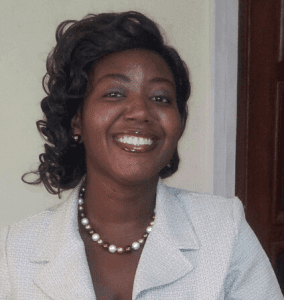Educational Issues
Enabling Innovation In Education for African Prosperity -By Adetola Salau


Adetola Salau
Innovation is taking two things that already exist and putting them together in a new way. – Tom Freston
All over Africa, too many schools are operating just like they were ‘100 years’ ago, even though the world is very different now. For Africa to be economically prosperous, its exponentially growing population of young people need to be able to utilise their skills and abilities. Changes need to be made about the outdated methodology that is ill-equipped to get students future- ready.
At the recently held World Innovation Summit for Education hosted by the Qatar Foundation, which took place in Accra, world renowed experts on educational matters gathered to discuss solutions on creating innovation in African education.
Under the theme of the summit — “Unlocking the World’s Potential: Leading and Innovating for Quality Education in Africa” — authorities in education discussed ways in which innovative approaches to learning could improve outcomes.
The Ghanain minister of education, Matthew Prempeh spoke about how quality education is still unavailable for a lot of the children in Africa. There are almost 100 million African children out of school and access to quality education is imperative to drive Africa forward, he stated.
Mr. Stavros Yiannouka, the chief executive officer of the World Innovation Summit in Education (WISE) stressed the need for transforming how education is delivered. He stated that education, as it currently exists, is still in the industrial model. There is need to revamp the model to infuse proven solutions and make it available to a lot of our children.
Before this decade is over, at least 100 million graduates would be a part of the workforce and this labour force will exceed that of India and China. Due to this, Minister Prempeh said that quality education is critical to building a more reliant Africa for it’s development and long-lasting prosperity. This makes achieving the 2030 Sustainable Development Goals possible, he opined.
Innovating education in Africa would involve:
(i) Learning from what’s working and scaling up those interventions: Her Excellency, Mrs. Aicha Bah Diallo, former minister of education in Guinea and former assistant director general for education in UNESCO spoke about leapfrogging and it immediately resonated with me and a lot of the delegates there.
There are different innovations to tackle the “educational predicament and they vary based on form and function — new instructional techniques to results-based funding instruments that reward quality; sharing knowledge about what works and scaling up successful solutions could fast-track advancements in education.
(ii) Re-defining what we term as the classroom. The former minister and current founder of Forum for African Woman Educationalists, Mrs. Diallo stressed that there are three pathways to learning, which should be considered, including formal, non-formal, and informal approaches. Information could be garnered during seminars, town hall meetings, or even during sporting events — and none of these involve a stereotypical teacher and student setup.
It was discussed that alternative adaptable knowledge paths, such as online learning and virtual certification processes should be considered to enable the acquisition of skills to further the future-readiness of students.
(iii) Infusing technology as tool, not as a crutch. Technology has the ability to improve teaching and drive down costs in education. However, for all of it’s promise to be fully utilised, there needs to be more investment in technological infrastructure and a deliberate effort made to boost teachers’ capabilities.
(iv) Building collaboration across the board between the communities that need intervention and the agencies implementing them.
I was glad to be a part of the delegation that deliberated at Accra this year. I learnt about ensuring that we focus on creating solutions for our children as our final outcome.
I came back inspired and re-invigorated to keep pushing our transformation agenda for our children.
Adetola Salau, Carismalife4U@gmail.com, an advocate of STEM education, public speaker, author, and social entrepreneur, is passionate about education reform.

















